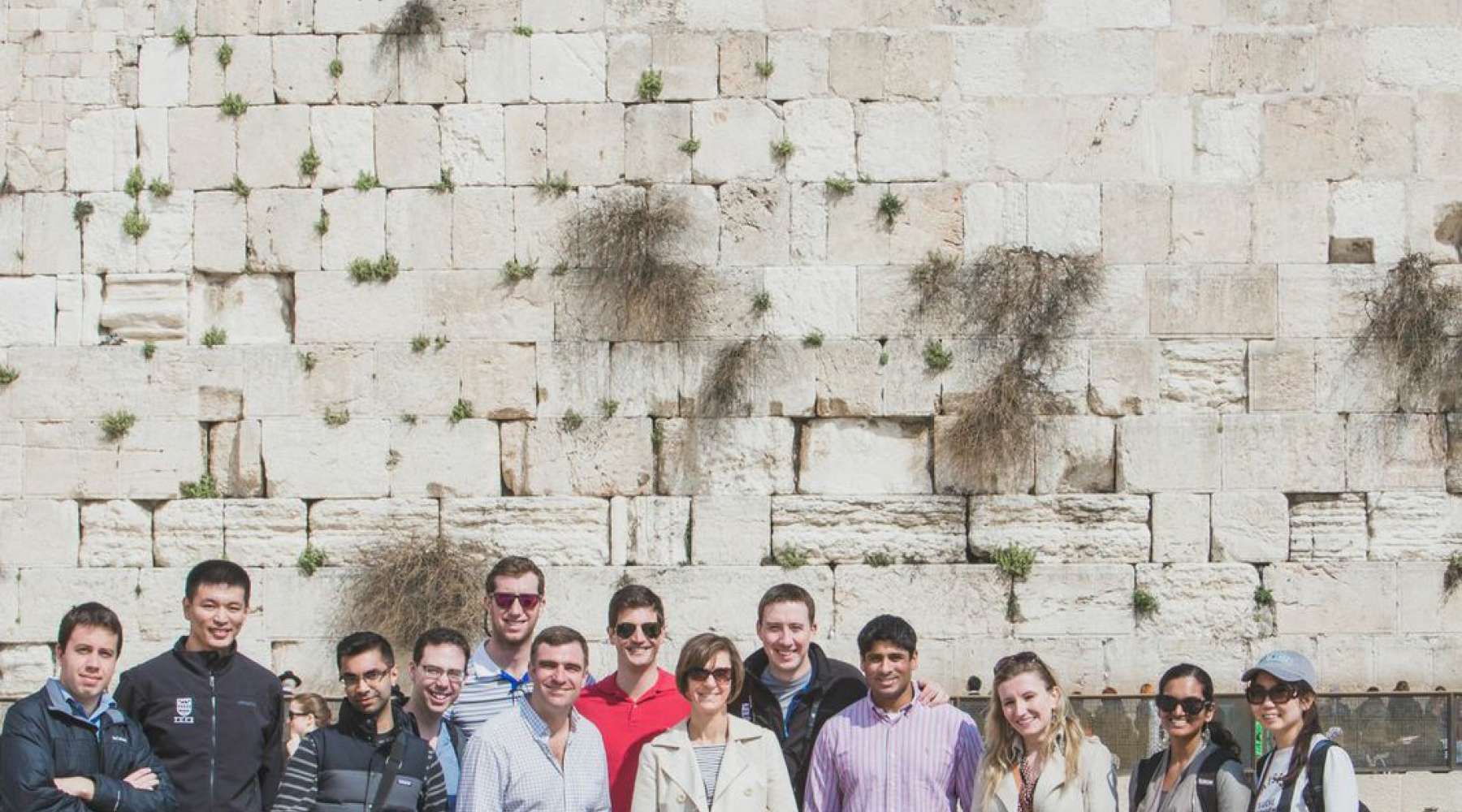
By Nathan Isaacson T'15, Yishen Xu T'15, Adam Klene T'16, and Kiley Winsnes T'16
Seventeen students traveled to Israel over spring break to attend a Global Insight Expedition (GIX) led by Adam Kleinbaum, associate professor of business administration. Global Insight Expeditions offer students opportunities to travel to a variety of countries to learn how business is done around the world. They learn about each country's unique business environment, opportunities for social entrepreneurship, and the role of business people in addressing social challenges.
These four students offer their biggest takeaways from their time in Israel.
Adam T’16
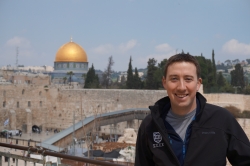
Adam Klene is a first-year Tuck student from Quincy, IL. After graduating from the University of Notre Dame, Adam worked for Deloitte Consulting in the strategy & operations group in Chicago where he served primarily consumer products clients. At Tuck, he is involved in the golf, entertainment, sports, and media clubs and is a TuckStuff intern.
Being in Israel during one of the most internationally watched Israeli elections in years is something I will certainly remember about this trip. I will remember the campaign posters of various parties, the complete chaos that Election Day elicited on the city of Tel Aviv (the beach that afternoon was packed!), the conversations with bartenders and other Israelis in a local pub that evening, and the utter surprise of the outcome that resulted the next morning. Before this trip, I hardly knew anything about Israeli politics. Now, I feel that I have a strong understanding of the political landscape and will certainly keep a closer eye on Israeli politics going forward.
Kiley T’16
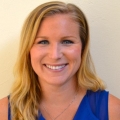 Kiley is a first-year student at Tuck. Before arriving in Hanover, she was living in stunning San Francisco and working for an integration software company. Originally from Chicago, Kiley spent her formative years in Seattle before chasing the California sunshine for her undergraduate degree in economics and religious studies. After Tuck, she hopes to get a job that combines two of her passions: fitness and technology. Outside of the classroom, Kiley enjoys running, road biking, writing, and the beverages of her two home cities: coffee and wine. Kiley can be contacted at kiley.j.winsnes.tu16@tuck.dartmouth.edu. Follow her on Twitter at @kileywins.
Kiley is a first-year student at Tuck. Before arriving in Hanover, she was living in stunning San Francisco and working for an integration software company. Originally from Chicago, Kiley spent her formative years in Seattle before chasing the California sunshine for her undergraduate degree in economics and religious studies. After Tuck, she hopes to get a job that combines two of her passions: fitness and technology. Outside of the classroom, Kiley enjoys running, road biking, writing, and the beverages of her two home cities: coffee and wine. Kiley can be contacted at kiley.j.winsnes.tu16@tuck.dartmouth.edu. Follow her on Twitter at @kileywins.
On this trip, I found myself wondering how Israelis' military service—an experience we discussed in terms of its effects on Israelis as employees—also shapes the Israeli network.
While visiting Microsoft, we learned that Israel is a small community, and that it's often likely you're no more than a single degree of separation from someone you've just met. Additionally, Israelis' time in the military provides a perfect opportunity for individuals to witness their colleagues operate in high-stakes situations.
From the outset, young Israelis get to watch their fellow soldiers as they begin their careers, take on leadership roles, and generally express their working styles. This kind of insight is incredibly rare, providing not only the perfect environment for developing strong, lasting interpersonal bonds, but also the chance to see how one's colleagues operate under immense pressure. Network building under fire.
I think the effect military service has on individuals' networks, and the Israeli network as a whole, are fantastic recipes for success.
Yishen T’15
 Yishen is a second-year student at Tuck. She spent three years as an auditor at PricewaterhouseCoopers before Tuck, and will transition into management consulting after graduation.
Yishen is a second-year student at Tuck. She spent three years as an auditor at PricewaterhouseCoopers before Tuck, and will transition into management consulting after graduation.
A highlight of the trip for me was the Shabbat dinner hosted by Alon, who is secular, and Chen, who is orthodox. We asked Alon if couples sharing different religious beliefs are common in Israel and how each of their family reacted to them starting a relationship. Alon admitted there was serious concern at first, but when the family met Alon and Chen in person, they accepted and welcomed them as who they.
This reinforced my belief that conflicts and misunderstandings could be better solved at the individual or civilian level. Of course, compromise is necessary as in any other relationship. For example, Alon participating in Shabbat dinner and other religious activities that Chen believes in is compromise. They’ve transferred those pure religious activities into something of their own, an opportunity of showing their affection and caring to each other.
Nathan T’15
 Nathan is a second year student at Tuck, originally hailing from Maine. Nathan studied history and political theory at Bowdoin College. He also attended the Tuck Business Bridge program in 2009. Prior to Tuck, he worked in Boston at Deloitte Consulting and New Balance. This past summer, Nathan interned with New Balance in Europe. At Tuck, Nathan is a fellow for the Center for Digital Strategies, co-chair of the Amos Trout Fly-Fishing Club, and plays tripod hockey and squash. He counts winning a tripod championship as one of his proudest moments at Tuck. After graduation, Nathan will return to New Balance in the direct-to-consumer/digital strategy group.
Nathan is a second year student at Tuck, originally hailing from Maine. Nathan studied history and political theory at Bowdoin College. He also attended the Tuck Business Bridge program in 2009. Prior to Tuck, he worked in Boston at Deloitte Consulting and New Balance. This past summer, Nathan interned with New Balance in Europe. At Tuck, Nathan is a fellow for the Center for Digital Strategies, co-chair of the Amos Trout Fly-Fishing Club, and plays tripod hockey and squash. He counts winning a tripod championship as one of his proudest moments at Tuck. After graduation, Nathan will return to New Balance in the direct-to-consumer/digital strategy group.
Even though it is not specifically business or education related, the contrast between Jerusalem and Tel Aviv has been one of the most striking experiences I had on our trip. I began my trip in Israel in Tel Aviv with five other students from Tuck. We had an unbelievable time, but for a while I thought that might have been more a product of traveling with good friends than it was due to Tel Aviv itself. Our return to Tel Aviv on the GIX has proven to me that this beautiful city on the coast deserves the credit.
Jerusalem is of immense cultural, historical, and religious importance. It is one of, if not the oldest city to which I have traveled. The significance of the structures, stories, events, and people who make up the history of the city is overwhelming.
If Jerusalem is all that is the past, Tel Aviv is the future and the present. This city has a vibrancy that rivals or exceeds that of any European or American city. To begin with, it is gorgeous, in everything from its beaches, to its streets, to its people. The young demographics of the city and the prosperous nature of the economy result in an energy that, when combined with the laid back beach culture, is simply infectious.
Before traveling to Israel I had heard that Jerusalem and Tel Aviv were very different places, but I could not fully visualize or appreciate the contrast. In my head Israel was Jerusalem; old, tradition-oriented, and dominated by conflict. Upon leaving the country, my association is now with Tel Aviv, a city full of promise and liveliness with which I have fallen in love.
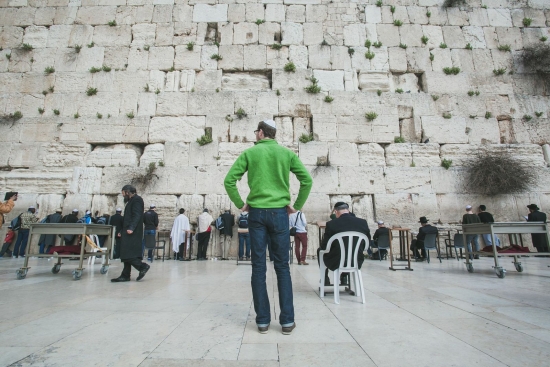 |
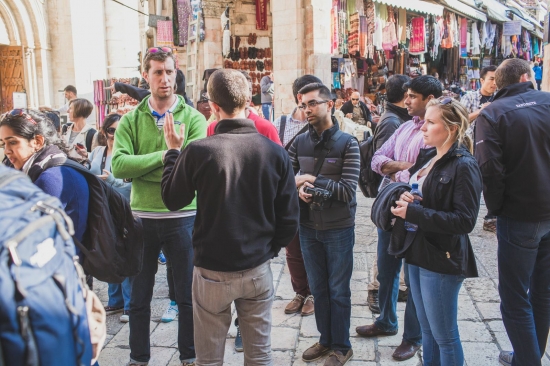 |
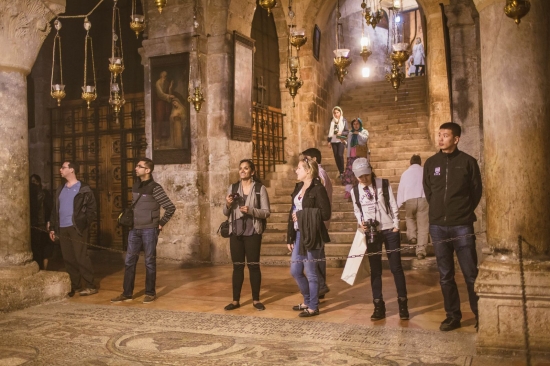 |
 |